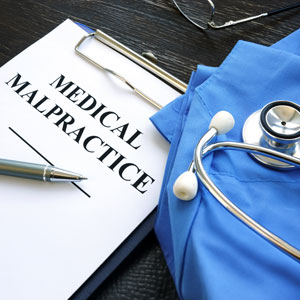Patient Security From Violent Acts Not Considered Medical Malpractice
Medical MalpracticeIn the case of Craig Simmons v. Jackson Memorial Hospital, Case Number 3D17-2291 (Fla. 4th DCA August 1, 2018), a patient who was violently beaten by a third party during his stay at the hospital was not required to follow medical malpractice pre-suit requirements under Chapter 766, Fla. Stat.
Facts Of The Case
Mr. Simmons was a resident psychiatric patient and was attacked by another resident psychiatric patient who had removed a piece of railing from a hallway. Simmons sued the hospital for negligence alleging that the hospital had a duty to:
- provide security to Simmons
- train its staff to recognize and address emergency situations such as an assault on a patient
The hospital defended the lawsuit by moving to dismiss by asserting that Simmons’ claim was actually medical malpractice and required dismissal without Chapter 766 pre-suit compliance.
The trial judge agreed with the hospital and dismissed Simmons’ lawsuit.
What Duty Does The Hospital Owe A Patient?
In this case, Florida’s Fourth DCA held that the attack on Simmons was not directly related to medical care or services provided by the hospital that require the use of professional judgment. Therefore, because Simmons’ claims do not involve the use of professional judgment or skill, Simmons’ claims are not medical malpractice claims under Florida law and no pre-suit notice is required under Chapter 766.
In coming to this conclusion, the Fourth DCA revisited two cases.
First, in South Miami Hospital, Inc. v. Perez, 38 So. 3d 809 (Fla. 3d DCA 2010), leaving a patient unrestrained and unattended in a hospital bed was determined to be medical malpractice because it involved a degree of professional judgment as to when a patient was a fall risk.
Second, in Quintanilla v. Coral Gables Hospital, Inc., 941 So. 2d 468 (Fla. 3d DCA 2006), it was held that a nurse who spilled scalding hot tea on a patient’s legs was not medical malpractice because the function of serving tea did not require a degree medical skill or judgment (basically, anyone can serve tea).
Therefore, determining whether a hospital owes a duty to a patient turns on whether professional judgment or skill is required as was also illustrated in National Deaf Academy v. Townes (nurse employed a restrictive hold on a psychiatric patient to prevent damage to the facility).
Not Everything That Happens In A Psychiatric Care Facility Is Psychiatric Treatment
Likewise, it was also not considered medical malpractice in Joseph v. University Behavioral LLC, 71 So. 3d 913 (Fla. 5th DCA 2011) where a psychiatric patient complained of being bullied by another patient and requested a transfer. The hospital refused the request for transfer and protection and the patient was subsequently beaten up resulting in a severe eye injury. The court in Joseph declined to adopt a standard that “everything that happens in a psychiatric care facility is psychiatric treatment.”
What About Your Case?
In applying these cases to your case, you should remember the rule—professional medical judgment is needed in order for your case to be medical malpractice. If there is any question whether your case involves a degree of professional medical judgment, then you should obtain an expert affidavit and follow pre-suit procedures outlined in Chapter 766, Fla. Stat.
On the other hand, if there is no question that your case is merely an injury that occurred at a hospital, then your claim is likely a mere negligence claim and you should not be deterred by Chapter 766 just because your injury occurred in a hospital.
Ask Us For Help With Your Case
If you have been injured during a hospital stay, you should speak to a Florida medical malpractice attorney to determine whether you have a case. We perform a free consultation to determine whether your case has legal merit. If your case is actionable, we will accept your case under a contingency fee agreement. This means that there are no attorney fees or costs unless a settlement or judgment is collected on your behalf.
Call us today to schedule your free consultation with a medical malpractice attorney.


